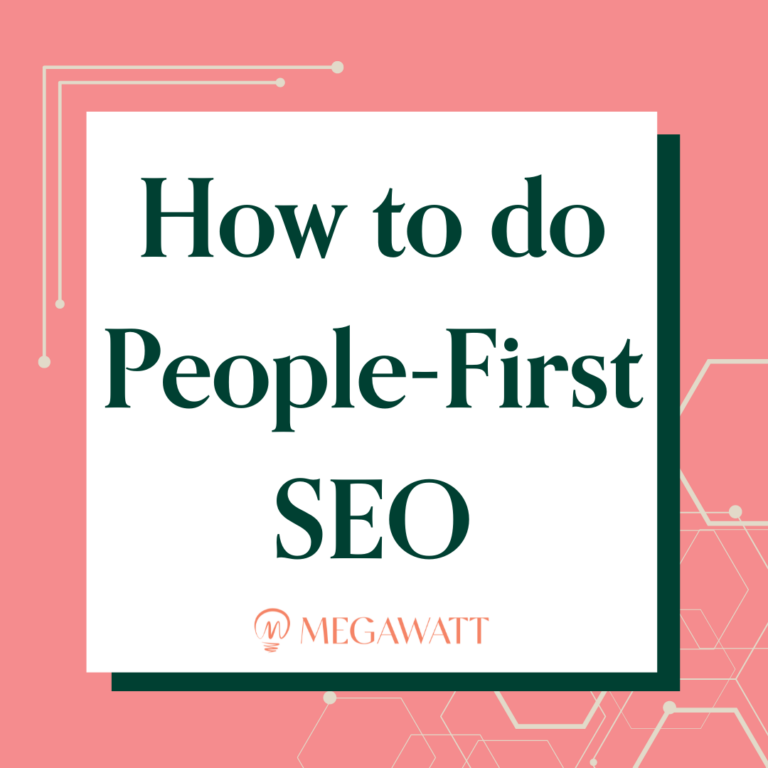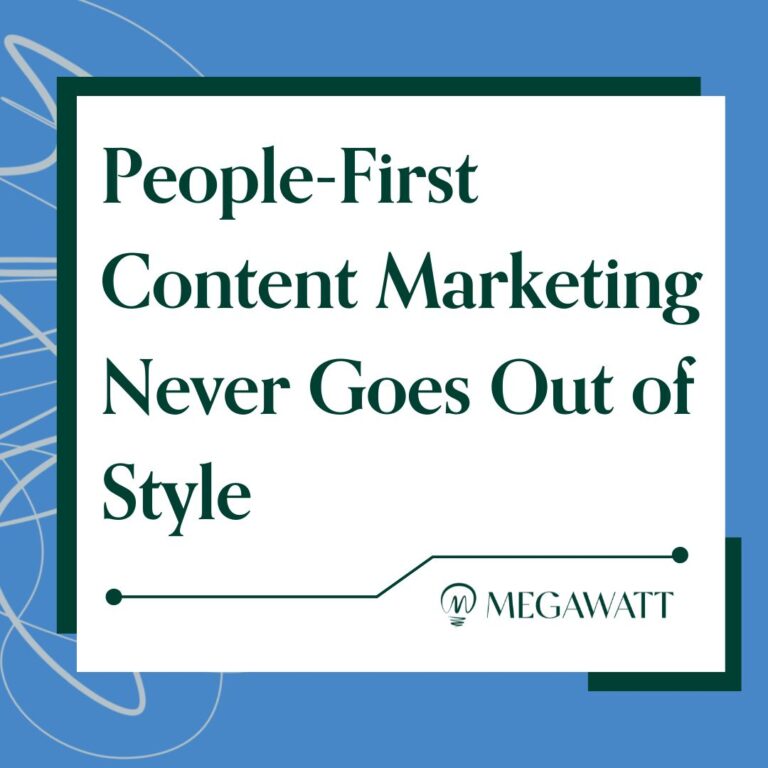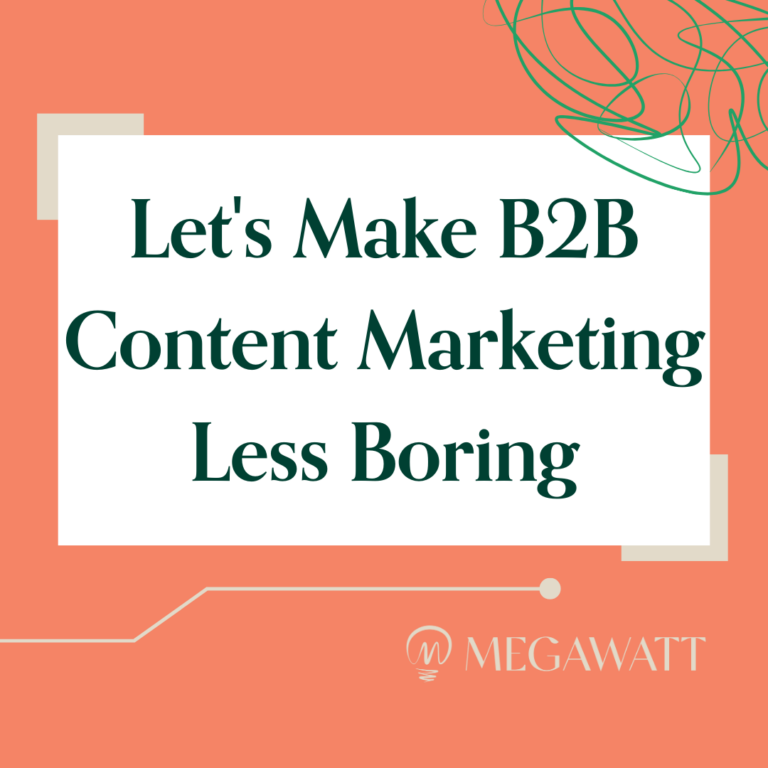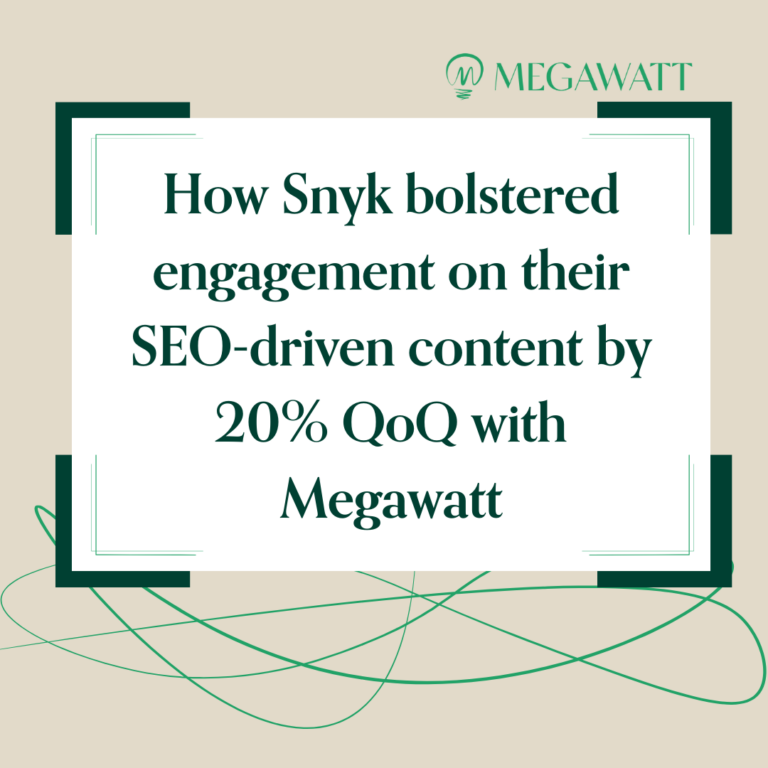To say Generative AI rocked the marketing world over the past year would be an understatement.
After the official launch of ChatGPT in late 2022, the app quickly cemented its status as the fastest-growing consumer software product of all time.
And ChatGPT is just the tip of the iceberg. Every major martech company has launched a generative AI (GenAI) product this year (many based on ChatGPT’s large language model or LLM), from Hubspot’s ChatSpot to Canva’s Magic Design to Adobe’s Firefly. Marketers can now lean on a wide array of AI tools that purport to write, edit, create, design, and analyze written and visual content faster than any human being ever could.
Between mass layoffs and the looming specter of generative AI, 2023 has been an unnerving year for B2B tech marketers. Tech companies have slashed marketing budgets and demanded that the “lucky” few marketers left with jobs figure out how to “do more with less.” Content marketers everywhere have felt the squeeze, as higher-ups wonder — often aloud and to our faces — can’t ChatGPT do your job?
But before you pour one out and declare content marketing dead, let’s all take a deep breath.
Yes, Generative AI is here to stay, but that doesn’t mean content marketers should throw in the towel. Rather, it’s time to don our blue light-blocking glasses and look AI square in the eye. The future of content creation requires balancing AI efficiency with human expertise.
Here’s what you as a marketer need to know about how AI will (and won’t) impact content marketing today and in the future. Buckle up!
GenAI and the Content Marketing Landscape
In this piece, we’ll focus primarily on GenAI tools that produce written content. Many platforms today use ChatGPT’s LLM (large language model for the uninitiated) as their basic engine, adding additional features to make their tools more user-friendly and sophisticated.
At Megawatt, we’ve been actively researching and experimenting with tools, including ChatGPT, Copy.ai, Writer, and more. As content marketers and advisors to our B2B tech clients, it’s our responsibility to understand what these tools are capable of.
Of course, we expect these tools to evolve rapidly in the coming months and years, so what’s possible today is only the beginning. However, we can make logical extrapolations about the limitations of LLMs and GenAI platforms based on what we know about technology’s limitations and humans’ unique capabilities.
What Generative AI Tools Do Well (Right Now)
Even at this stage, generative AI tools offer advantages that can’t be overlooked. These tools have revolutionized the industry by increasing efficiency and scalability, allowing businesses to generate large volumes of content at an unprecedented speed. Moreover, AI tools can significantly save time and resources by automating content creation processes.
Here’s where we’ve found employing AI to be advantageous to our work:
![]()
Conquering the Blank Page
Generative AI tools are particularly good at helping writers and marketers overcome the age-old terror of the blank page. If you’re looking to get something on the page to work with (a.k.a. “A shitty first draft”), GenAI can help.
You can also ask for ideas. For example, you could use a prompt: “Help me develop ideas for five email nurture campaigns for a security company designed to move audiences down the funnel.” These tools are excellent for brainstorming and helping writers get out of a rut.
Acting as a Research Assistant
GenAI tools are also perfect for helping you understand specific concepts. The key here, as with most GenAI use cases, is to experiment with different prompts until you get the results you are looking for. For example, if you’re writing about a specific cybersecurity product and need to get up to speed fast, you might ask a GenAI tool, “Help me understand how XDR is different from EDR.”
Just remember to verify everything for accuracy before committing pen to paper.
Summarizing & Digesting Content
Do you have a dense, long, or technical piece to pull key takeaways from? Copy-paste the text into your GenAI tool and ask it to create a summary. You can even set the reading level of the response to guarantee the output is tailored to where you are.
Producing Social Media Posts
GenAI is proficient at producing short, pithy copy that is well-suited (and specifically designed) for social media. Some marketing platforms like Hubspot even have GenAI tools built into their social media management and publishing interfaces, making it fast and easy to produce social copy, especially if you already have a longer piece of content that can be used as fodder. That said, always edit any AI content carefully before scheduling it to publish.
Where Generative AI Tools Fall Short
By eliminating the need for manual writing and research, businesses can meet demanding content production schedules and keep up with the ever-increasing content demands of their audience.
However, it is essential to acknowledge the limitations of relying solely on AI tools for content creation. There are still many things AI is not good at, like:
![]()
Creating a Unique Viewpoint
Generative AI works by synthesizing existing materials. It’s not capable of original thought. One major drawback is its inability to incorporate personal experiences and depth into the content it generates.
We know from experience that content based on new data, personal experiences, and expert opinions is far more valuable to readers than content that simply regurgitates information from other websites. To create truly valuable content for your readers, you need to go beyond what AI is capable of.
Maintaining Authenticity and Credibility
AI lies.
Well, to be more accurate, AI hallucinates, meaning it infrequently creates incorrect patterns, otherwise known as “making things up.”
Additionally, AI can sometimes pull whole snippets of text from other parts of the web, putting you at risk for plagiarism and all its legal, SEO, and authenticity implications.
This means you can’t trust GenAI for accurate stats or quotes, and you need to verify most of the information it gives you for accuracy and originality before publishing. This can sometimes be just as time-consuming as writing the content yourself.
Catering to a Nuanced Audience
To create impactful content for brands, you need to speak to your specific audience. This requires a deep understanding of who they are, their needs, and their specific problems and concerns. This becomes even more true with niche tech audiences like developers, who are often highly skeptical of marketing copy.
AI tools struggle to cater to nuanced audience preferences, potentially resulting in content that lacks the desired impact.
How to Leverage GenAI without Succumbing to Its Pitfalls
AI models can learn from a large amount of data and identify patterns that humans may not be able to see. This can result in more accurate and informative content. However, AI will likely never be able to replicate human creation processes exactly. AI is a valuable tool in your arsenal, but it should not, and will not, replace you as a writer.
How do we know this for sure? Because those who have already tried going all in on AI in an attempt to game Google have failed quite miserably. The already legendary tale of the AI-powered SEO heist illustrates that while pages and pages of SEO-generated content may help you pull ahead in the short run, in the long run, it will damage your brand’s credibility, degrade your rankings in Google, and most likely destroy your conversion rates.
So, how can savvy content marketers use AI to enhance their content without rendering themselves obsolete? By balancing efficiency with human expertise.
Use AI Tools to Enhance, not Replace Human Writers
In his article, Why CMOs Shouldn’t Cut Content Budgets, Joe Lazar writes:
“Realistically, even the best content teams today only spend 20% of their time on truly badass, breakthrough storytelling. The other 80% gets eaten up by time-consuming tasks.
But what if, with the help of AI, we could shift that ratio to 50/50? Or 60/40? Think of the incredible work we could accomplish then.”
Here is the key to using AI to supercharge your content marketing efforts: automate or accelerate time-consuming production tasks so you can invest more time and energy into telling stories. Use AI for what it’s best at — generating article briefs or outlines, learning complex concepts quickly, brainstorming content ideas, etc. By offloading some tedious tasks, you can free up your time and brain space for more important things.
Lean into the Human Advantage
As artificial intelligence becomes more accessible and widely used for content creation, it will empower more people to produce content. But with more generic AI-generated content out there, people will search for the gems that stand out in quality and uniqueness. They’ll search for content with more genuine and insightful perspectives—rewarding writers who can meet that higher bar.
You can stay ahead of this curve by consistently building a relatable and authentic brand image that emphasizes what makes us human.
Pay Attention to E-E-A-T
Quality content and Google Search Quality Ratings go hand in hand, which is a big part of why tasking AI with your SEO strategy is a recipe for disaster.
![]()
E-E-A-T is a Google-coined acronym that stands for Experience, Expertise, Authority, and Trust. It’s a crucial factor in optimizing online user experiences. In short, it dictates that to rank well with Google, content must demonstrate:
- Experience: The writer appears to have first-hand experience with the subject matter.
- Expertise: The writer has the knowledge, credentials, or qualifications to write about this subject.
- Authority: The website itself has topical authority in this subject matter.
- Trust: The content itself is factually accurate and the website is trustworthy.
E-E-A-T is only becoming more important, which is bad news if you are a spammy casino site, but great news if you are a B2B company dedicated to creating quality content for your readers.
Go All in on Subject Matter Experts
Whereas AI can only repeat what already exists on the web, speaking to and incorporating insights from experts lets you create something genuinely helpful and unique to your organization.
At Megawatt, we lean heavily on SME interviews to create accurate, authentic, and authoritative content. Check out our guide on how to embed SMEs into your B2B content production process.
Lean into Thought Leadership
AI can write 100 new blog posts in ten minutes but not one will contain an entirely original thought. On the other hand, humans have opinions, and we love sharing them (this article is proof!).
Thought leadership content gains readers’ attention and trust by expressing a strong and unique point of view. Content marketers partner with internal experts or thought leaders to generate content that provides actionable tips and strategies that address industry trends, includes real-world examples, and presents new ways of thinking about common challenges.
Read our guide to producing thought leadership content.
Tell More Stories
Humans are hardwired to love stories. So, incorporate more of them into your content marketing strategy to demonstrate experience and build trust. Incorporate case studies and real-life examples into your article and social media posts. Get creative, have fun with it!
For example, Jessica Lau at Zapier built her own GPT chatbot to write this article about building your own GPT. This works on several levels:
- It tells the reader a fun and engaging story while teaching them a real skill.
- It boosts Lau’s authority as a subject matter expert by proving she has done the thing she is writing about.
- It stands out from the dozens of other articles on the internet about how to build a chatbot.
Looking Ahead: Human and Robot Harmony
While generative AI tools have undoubtedly revolutionized content creation by enhancing efficiency, they still have limitations. The future of content creation lies in balancing AI efficiency with human expertise.
Businesses prioritizing real-world experience, expertise, and authority in their content creation processes will be better positioned to build credibility and engage their audience.
By adopting a hybrid approach that combines the power of AI tools with the depth of personal experiences, businesses can create valuable content that resonates and thrives in the ever-changing digital landscape.
Not sure where to get started with all this information? At Megawatt we can help you create a content strategy that balances AI tools and human expertise to save you time and create the best content possible.
Reach out to learn more!






